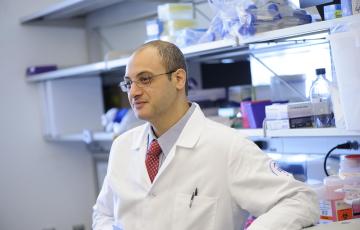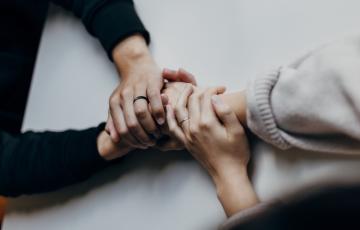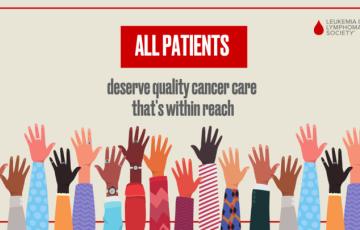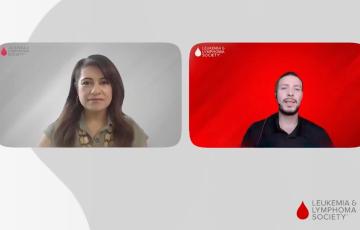Search Results

5 Ways to Support Blood Cancer Patients
Have you ever Googled, “what to do for someone with cancer”?
Have you felt helpless or frustrated when trying to think of something meaningful to offer them or do for them? You want them to know you’re ready to help, but don’t know how to help.
We’re often told to just ask the person what they need. But the truth is, they probably don’t know what they need. And figuring it out can be tough on top of all the new questions that come with their diagnosis.
So now what?

We Dare to Dream so Their Dreams Come True
Did you know that blood cancer is the most common cancer diagnosis for children, accounting for 40% of pediatric cancer cases? In fact, nearly 55,000 children and adolescents in the United States currently have blood cancer or are in remission from blood cancer.
Ask the Doctor Part 3: Five Questions about Myeloma
Myeloma Survivor, Sharon Clark Talks to Dr. Nichols about the Latest in Myeloma Research and Treatment
Cancer and Sun Safety: What You Need to Know
Summer is in full swing, and many of us are enjoying outdoor activities and lots of time in the sun. For cancer patients, being mindful of sun exposure before, during and after cancer treatment is extremely important.
According to The Leukemia & Lymphoma Society’s (LLS) Information Specialists, a team of master’s level oncology social workers, nurses and health educators, sunlight has benefits, but it is important to protect yourself from too much sun exposure.

Key bill gains major traction in Congress, bringing children with cancer one step closer to faster care
The House Energy and Commerce Committee unanimously passed the Accelerating Kids' Access to Care Act. It's a key step toward the bill becoming law and ensuring kids can get cancer care without delay.State borders shouldn’t be barriers to treatment for children with cancer or other complex illnesses. Yet all too often, they cause challenges—or even treatment delays—for children and their families who rely on Medicaid or CHIP for their health insurance.

Meet the Researcher: Omar Abdel-Wahab, MD
This is part of a periodic series of Q&A’s with LLS-funded researchers. Dr. Abdel-Wahab of Memorial Sloan Kettering Cancer Center focuses on an area of research called epigenetics – chemical modifications that regulate (switch on and off) gene activity. He is studying how these processes drive the development of acute myeloid leukemia and other blood cancers. He currently holds a Career Development Program grant from LLS, a program that supports scientists earlier in their careers.
Q. What is the focus of your research and its primary goal?
Remembering Robbie
On Friday, October 20, 1944, Robert “Robbie” Roesler de Villiers was only 16 years old when he died from leukemia. Robbie’s parents, Rudolph and Antoinette, were stricken with grief and frustrated by the lack of effective treatments for what was then considered a hopeless disease. In his memory, the family started a foundation in 1949.

Top Mental Health Resources For Blood Cancer Patients & Caregivers
From physical symptoms of blood cancer itself to treatments and their side effects, the experience puts a patient’s body through a lot. But how does cancer affect you emotionally?
Bottom line: Learning that you or someone you love has a serious illness is scary.
It reaches beyond blood tests: You might feel hopeless, irritable, or lose interest in things you once enjoyed. That’s why taking care of your mind, just as much as your body, is crucial when you’re facing blood cancer.

People with CLL are living longer than ever before, and cures are on the horizon
People with the most common type of blood cancer, chronic lymphocytic leukemia (CLL), are living longer than ever before without their disease progressing. While cures for CLL patients are still rare, survival rates have improved steadily over the last 50 years, with nearly 90 percent of people diagnosed with CLL today surviving at least five years, and most for many years longer.

